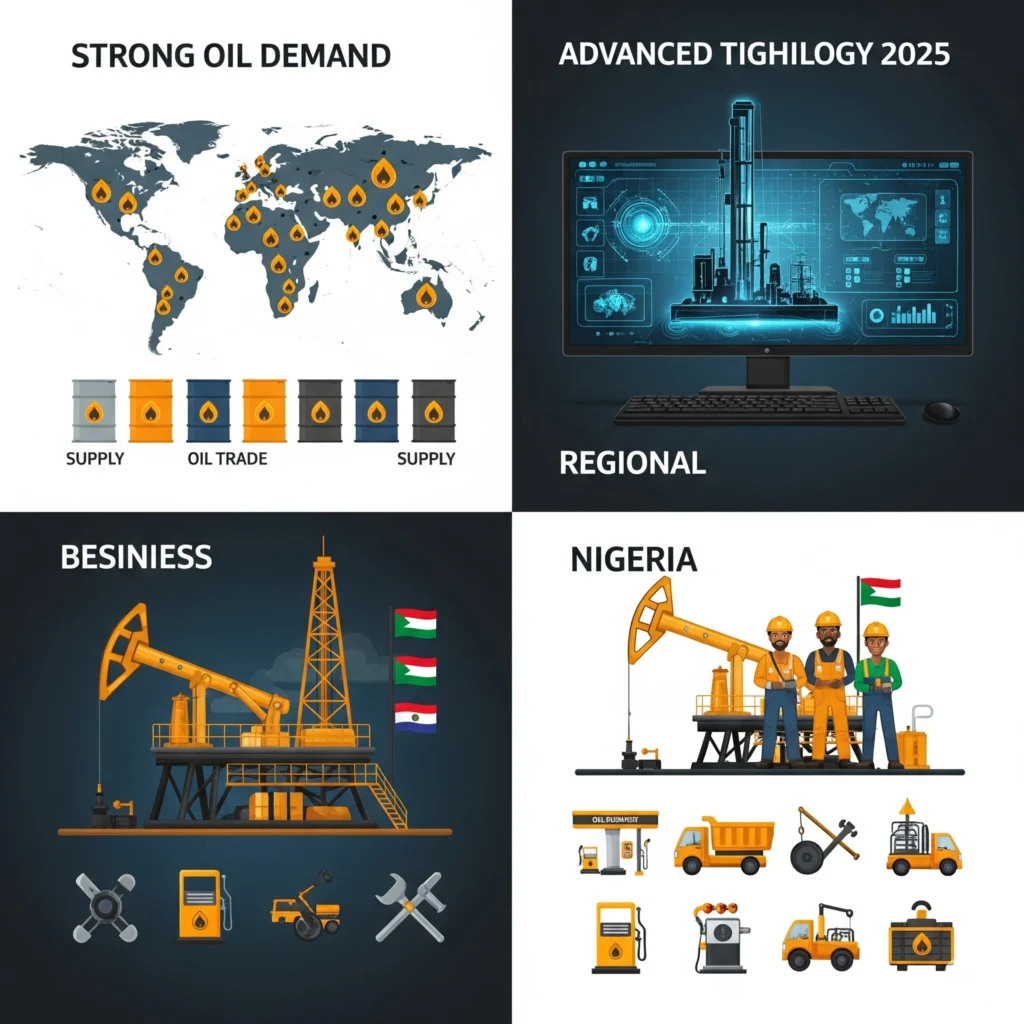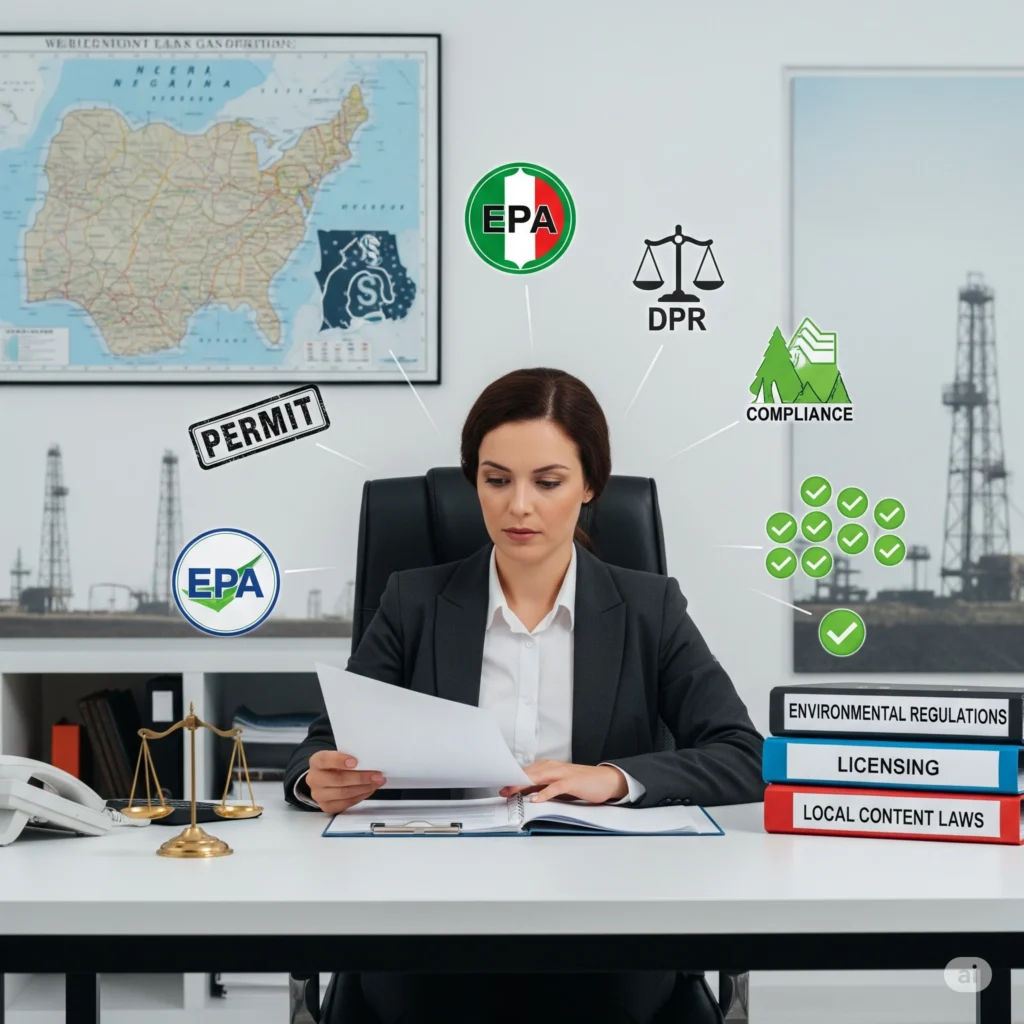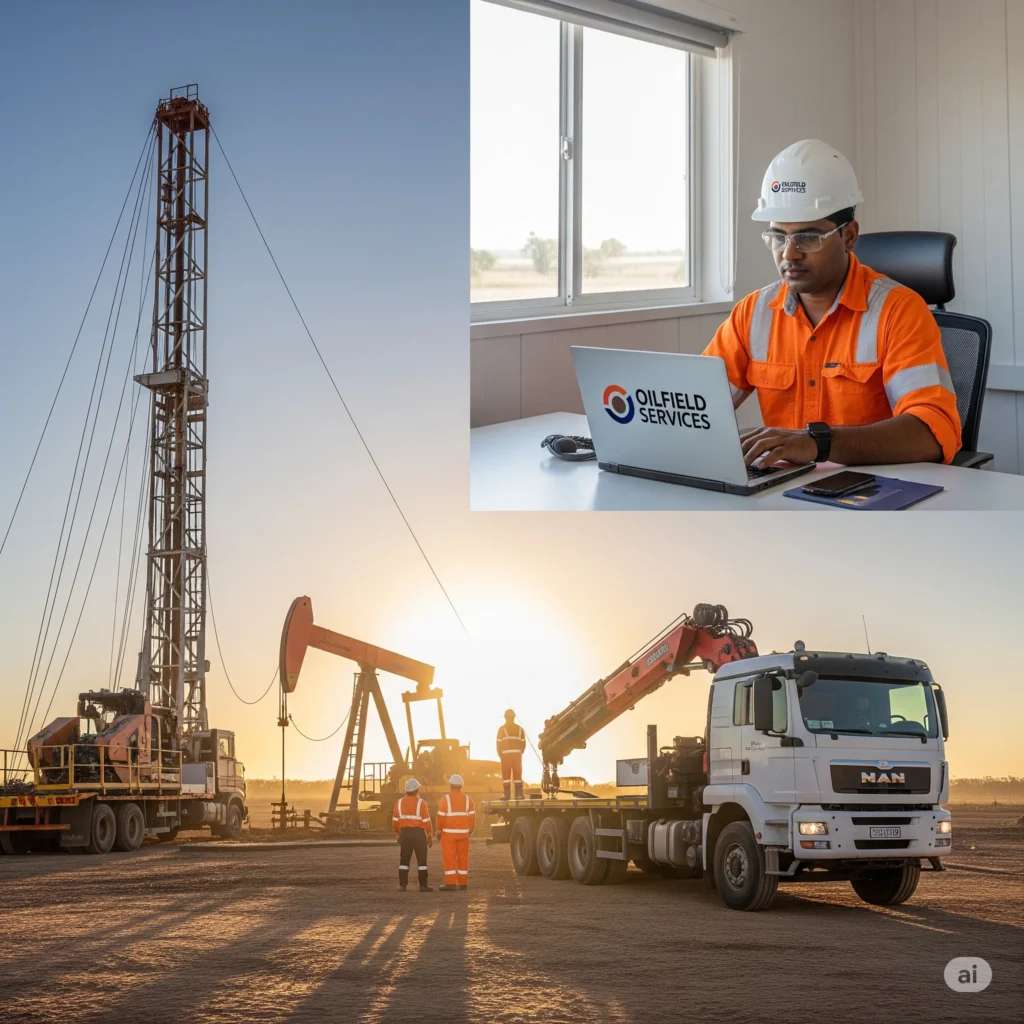The oil and gas business is a powerhouse of opportunity, fueling economies and offering paths to wealth for those bold enough to dive in. If you’re wondering how to get into the oil business in 2025, you’re in the right place. This comprehensive guide is designed for beginners, breaking down every step to start an oil company, own an oil well, or even provide niche services like oilfield copywriting. From understanding the industry to navigating regulations and securing funding, we’ll cover it all in a way that’s easy to grasp and inspiring. Let’s get started on your journey to success in the oil industry!
What Is the Oil and Gas Business?
The oil and gas industry operates in three key sectors:
- Upstream: Exploring and drilling for oil and gas (e.g., finding reserves, operating wells).
- Midstream: Transporting and storing oil and gas (e.g., pipelines, tankers).
- Downstream: Refining oil into products like gasoline and selling them (e.g., gas stations, refineries).
Each sector offers unique opportunities. For example, upstream is ideal if you want to own an oil well, while downstream suits those interested in starting a gas business. In 2025, the industry is evolving with a focus on sustainability, creating space for innovative startups. For instance, new technologies like carbon capture or eco-friendly drilling are gaining traction, making it an exciting time to get into the oil industry.
Why Start an Oil Business in 2025?

- Strong Demand: Global oil demand is projected to remain high, especially in emerging markets like Africa and Asia.
- Technological Advances: Tools like AI-driven exploration and automated drilling reduce costs and risks.
- Regional Opportunities: Countries like Nigeria offer untapped reserves and supportive policies for new businesses.
- Diverse Niches: From oilfield services to gas business, there’s a role for every skill set.
Steps to Start an Oil Company

Curious about how to start an oil company? It might seem overwhelming, but breaking it down into clear steps makes it manageable. Here’s your roadmap:
Step 1: Research the Oil and Gas Market

Knowledge is power in the oil business. Start by studying:
- Market Trends: Check reports from the International Energy Agency (IEA) or OPEC for 2025 oil demand forecasts. For example, global oil demand is expected to grow by 1.2 million barrels per day in 2025.
- Regional Opportunities: If you’re eyeing how to start oil and gas business in Nigeria, research local demand and partnerships with the Nigerian National Petroleum Corporation (NNPC).
- Competitors: Analyze what successful oil and gas companies do to find your niche.
Use platforms like X to follow industry leaders and stay updated on trends.
Step 2: Craft a Detailed Business Plan

A business plan is your blueprint for starting an oil business. Include:
- Business Goals: Are you focusing on drilling, oilfield services, or a gas business like a fuel station?
- Target Market: Will you serve local or international clients? For example, Nigeria’s growing urban population is a great market for gas stations.
- Financial Projections: Estimate startup costs, revenue, and break-even points.
- Unique Selling Proposition (USP): Maybe you’ll offer eco-friendly drilling or specialized oilfield copywriting to market your brand.
A clear plan attracts investors and keeps you focused.
Step 3: Navigate Legal and Regulatory Requirements

The oil industry is heavily regulated to ensure safety and environmental protection. Key steps include:
- Permits and Licenses: In the U.S., you’ll need permits from the Environmental Protection Agency (EPA) or state agencies. In Nigeria, the Department of Petroleum Resources (DPR) oversees licensing.
- Environmental Compliance: Follow regulations on emissions and waste disposal. For example, 2025 regulations may require carbon offset programs.
- Local Laws: In Nigeria, local content laws mandate hiring Nigerian workers or partnering with local firms.
Hire a legal consultant to streamline this process and avoid costly mistakes.
Step 4: Secure Funding for Your Oil Business

Starting an oil company requires capital, but there are ways to fund your dream:
- Bank Loans: Approach banks with your business plan for small business or industry-specific loans.
- Investors: Pitch to venture capitalists or angel investors interested in the oil and gas business.
- Partnerships: Team up with established oil and gas companies to share costs and expertise.
- Crowdfunding: Platforms like Kickstarter can work for smaller ventures, like oilfield services.
Starting with a low-cost model, like oilfield copywriting or equipment leasing, can help you bootstrap.
Step 5: Build a Skilled Team

The oil business demands expertise. Key hires include:
- Geologists: To identify oil reserves.
- Engineers: For drilling and equipment management.
- Safety Officers: To ensure compliance with regulations.
If you’re new to the oil industry, focus on business management and partner with technical experts. Network at industry events or on X to find talent.
Step 6: Launch Your Operations

With funding and permits in place, it’s time to start. Options include:
- Leasing land for drilling.
- Purchasing equipment like rigs or trucks.
- Offering services like oilfield copywriting or consulting to support other oil and gas companies.
Start small—maybe with one well or a single service—and scale as profits grow.
How to Own an Oil Well
Owning an oil well is a thrilling way to get into the oil business. Here’s how to make it happen:
Lease or Buy Land
Oil wells require land with proven reserves. Work with geologists to analyze seismic data and identify promising sites. Leasing land is often more affordable, with costs ranging from $1,000 to $10,000 per acre, depending on location.
Partner with Operators
If drilling isn’t your strength, partner with an operating company. They handle the technical side (drilling, maintenance), and you share the profits. This is a great option for beginners.
Invest in an Existing Well
You can buy a stake in an operational oil well through investment groups or partnerships. Costs start at $50,000 for a small share, making it a lower-risk way to own an oil well.
Risks to Watch: Dry wells, equipment failures, or oil price drops can impact profits. Always consult experts before investing.
How Much Does It Cost to Start an Oil Company?
A common question is, “How much does it cost to start an oil company?” Costs vary by business type. Here’s a detailed breakdown:
| Business Type | Estimated Cost (USD) | Details |
|---|---|---|
| Oilfield Service Company | $50,000 – $500,000 | Includes equipment rentals, consulting, or oilfield copywriting services. |
| Gas Station Setup | $100,000 – $300,000 | Covers land, pumps, and initial inventory for a gas business. |
| Drilling an Oil Well | $1M – $10M | Includes drilling rigs, labor, and land leasing for an oil well. |
| Exploration (Seismic Surveys) | $100,000 – $1M | Costs for geological surveys to find oil reserves. |
Additional Costs
- Permits: $10,000–$100,000 in the U.S.; varies in Nigeria based on DPR requirements.
- Equipment: Rigs ($500,000+), trucks, or safety gear.
- Labor: Engineers and geologists earn $50,000–$150,000/year.
- Insurance: Liability and environmental insurance can cost $10,000–$50,000 annually.
Tip: Start with a service-based business to keep costs low, then reinvest profits to grow.
Starting an Oil and Gas Business in Nigeria
Nigeria’s oil and gas business is a goldmine, but it comes with unique steps:
Regulatory Requirements
- DPR License: Apply through the Department of Petroleum Resources. Expect fees and a 3–6 month approval process.
- Local Content Laws: You must hire Nigerian workers or partner with local firms like the NNPC.
- Environmental Compliance: Adhere to Nigeria’s environmental regulations, including waste management.
Opportunities
- Untapped Reserves: Nigeria has vast oil and gas reserves, especially in the Niger Delta.
- Growing Demand: Urban growth drives demand for gas stations and fuel products.
- Government Support: Policies encourage new businesses in the oil industry.
Challenges
- Infrastructure: Unreliable power or roads can slow operations.
- Security: Some regions face risks like vandalism or theft.
- Bureaucracy: Licensing can be slow without local connections.
Tip: Hire a local consultant and build ties with Nigerian firms to navigate these challenges.
Who Is Considered the Entrepreneur of the Oil Industry?
John D. Rockefeller is widely regarded as the entrepreneur of the oil industry. In 1870, he founded Standard Oil, which controlled 90% of U.S. oil production by the 1880s. His strategies—streamlining supply chains, cutting costs, and innovating—set the standard for modern oil and gas companies.
Today, figures like Nigeria’s Aliko Dangote, who built a massive refinery, inspire new entrepreneurs. Their focus on scalability and innovation can guide you as you start an oil business.
Marketing Your Oil Business
A great oil business needs great marketing. Here’s how to stand out:
Build a Professional Website
Create a website optimized for keywords like how to start an oil and gas company. Include:
- A homepage explaining your services.
- Blog posts on topics like how to get in the oil industry.
- A contact form for inquiries.
Invest in Oilfield Copywriting
High-quality content, like guides or case studies, attracts clients. For example, a blog on how to start a oil business can drive traffic. Hire a pro for oilfield copywriting to craft compelling messages.
Use Social Media
Share updates on X about your oil and gas business. Post tips, industry news, or behind-the-scenes content to engage followers.
Network Actively
Attend oil and gas conferences or join online forums. Building relationships can lead to partnerships or clients.
Challenges and Tips for Success
The oil business has hurdles, but you can overcome them:
- High Costs: Start with a low-cost model like oilfield services and reinvest profits.
- Regulations: Work with a legal expert to handle permits and compliance.
- Market Volatility: Diversify into gas business or renewable energy solutions to reduce risk.
- Competition: Offer unique services, like eco-friendly drilling or specialized oilfield copywriting.
Stay ahead by following 2025 trends, like carbon capture or automation, on platforms like X.
Conclusion
Getting into the oil business in 2025 is a bold and exciting move. Whether you want to start an oil company, own an oil well, or provide oilfield services, the path is clear: research the market, plan carefully, secure funding, and take action. It might feel like a big step, but with the right approach, even a beginner can thrive in the oil and gas industry. Don’t wait—download our free Oil Startup Checklist or connect with an expert for personalized guidance today!
FAQs About Starting an Oil Business
Q: How much does it cost to start an oil company?
A: Costs range from $50,000 for oilfield services to $10M for drilling. Start small to manage expenses.
Q: How to start oil and gas business in Nigeria?
A: Secure a DPR license, partner with local firms, and hire a consultant to navigate regulations.
Q: Can I own an oil well without experience?
A: Yes, invest in a well or partner with an operator to handle technical operations.
Q: What’s the easiest way to get into the oil industry?
A: Start with a service business, like oilfield copywriting or equipment leasing, which requires less capital.



